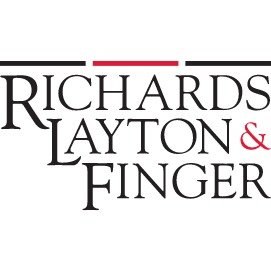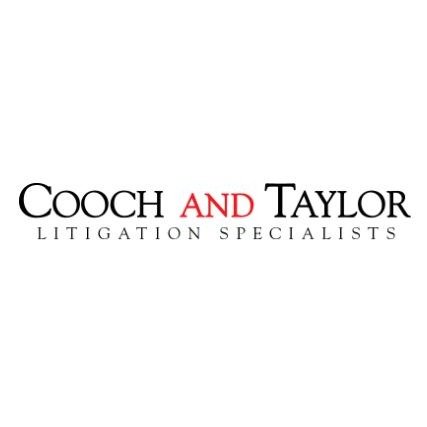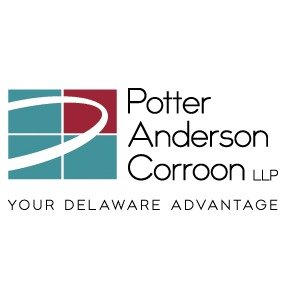Best Sanctions & Export Controls Lawyers in Wilmington
Share your needs with us, get contacted by law firms.
Free. Takes 2 min.
List of the best lawyers in Wilmington, United States
About Sanctions & Export Controls Law in Wilmington, United States
Sanctions and export controls govern the movement of goods, services, technology, and financial assets across U.S. borders. In Wilmington, United States, businesses and individuals must comply with a mix of federal laws and regulations that prohibit or limit trade with certain countries, entities, and individuals for reasons connected to national security, foreign policy, and economic stability. These rules are enforced by agencies such as the U.S. Department of Treasury’s Office of Foreign Assets Control (OFAC), the Department of Commerce’s Bureau of Industry and Security (BIS), and the Department of State. Wilmington, with its port and business environment, is significantly affected by these regulations, making awareness and compliance essential for lawful operations.
Why You May Need a Lawyer
Legal challenges in sanctions and export controls arise in a variety of situations. Business owners, importers and exporters, logistics companies, technology firms, and financial institutions in Wilmington may require legal assistance to ensure compliance with federal regulations, obtain required licenses, or respond to government investigations. Common scenarios include:
- Receiving notice of an audit or investigation by U.S. authorities
- Uncertainty about the legality of exporting particular goods or sharing technology abroad
- Discovering potential violations or errors in export documentation
- Dealing with frozen assets or blocked transactions
- Seeking to understand recent changes to sanctions lists or export rules
- Responding to civil or criminal enforcement actions
- Training staff or implementing compliance programs
Experienced legal counsel can help interpret complex laws, minimize liability, negotiate with authorities, and protect the interests of your business or personal assets.
Local Laws Overview
While most sanctions and export controls come from federal statutes, Wilmington businesses must also comply with state and local regulations governing trade and commerce. Key aspects to be aware of include:
- Federal Precedence: Federal laws and regulations on sanctions and export controls override conflicting state or local laws. Wilmington entities must prioritize federal compliance.
- Port Proximity: As a port city, Wilmington sees a higher volume of imports and exports. This means more frequent scrutiny by customs, Homeland Security, and other agencies.
- Due Diligence: Wilmington companies are responsible for thorough screening of clients, vendors, and third parties to avoid dealings with sanctioned parties.
- Training and Policies: Local firms should establish and document robust training and compliance programs to show good faith efforts if audited.
- Recordkeeping: Proper documentation of all shipments, communications, and screening activities is not just best practice but is often required by law and useful in defense against violations.
- Enforcement Cooperation: Local authorities may coordinate with federal agencies in investigations and enforcement actions, increasing the importance of local compliance awareness.
Frequently Asked Questions
What are sanctions and export controls?
Sanctions restrict or block trade and financial transactions with certain individuals, entities, or countries for foreign policy or security reasons. Export controls are regulations that limit or monitor the transfer of specific goods, technology, or information to foreign parties.
Who enforces sanctions and export controls in Wilmington?
Sanctions and export controls are primarily enforced by federal agencies such as OFAC, BIS, the U.S. Customs and Border Protection, and the Department of State. State and local authorities may assist with enforcement or investigations.
What activities can trigger a sanctions or export control violation?
Violations can include shipping restricted goods without a license, providing services to sanctioned countries or entities, transferring sensitive technology, or failing to screen customers against restricted party lists.
Am I responsible if a third party uses my product in violation of export controls?
Yes, you could be held liable if you knew or should have known your product would be used for prohibited purposes or transferred to a restricted party. Proper due diligence and end-user screening are essential.
Do I need a license to export from Wilmington?
It depends on the product, destination, end user, and end use. Many routine exports do not require a license, but sensitive goods, technology, and transactions with certain destinations or parties require prior government approval.
How do I check if a party is on a sanctions list?
The U.S. government maintains online lists such as the OFAC Specially Designated Nationals (SDN) List and the BIS Entity List. Businesses should include screening procedures in their compliance programs.
Can ignorance of the law be a defense if I violate sanctions or export controls?
Generally, ignorance is not accepted as a defense. U.S. sanctions and export controls apply broadly, and it is your obligation to be informed and compliant.
What are the penalties for non-compliance?
Penalties can include substantial civil fines, criminal prosecution, imprisonment for individuals, loss of export privileges, and reputational damage.
What should I do if I suspect a violation has occurred?
Consult a lawyer immediately. In many cases, self-disclosure to authorities, through counsel, can mitigate penalties. Acting quickly is important.
Can I get help if my company is audited or investigated?
Yes, experienced sanctions and export controls attorneys can guide your response, help gather documents, communicate with authorities, and defend your interests.
Additional Resources
If you need more information or assistance, the following resources can help:
- U.S. Department of the Treasury - Office of Foreign Assets Control (OFAC)
- U.S. Department of Commerce - Bureau of Industry and Security (BIS)
- U.S. Customs and Border Protection - Wilmington port office
- Delaware State Bar Association - for locating qualified attorneys
- U.S. Small Business Administration (SBA) - for compliance support and educational materials
- Local chambers of commerce - for networking and training opportunities on compliance
Next Steps
If you believe you need legal advice or representation related to sanctions and export controls in Wilmington, United States, consider the following steps:
- Gather all relevant documents and communications regarding your case or business activities.
- Identify any deadlines for responses, filings, or reporting related to your situation.
- Contact a qualified Wilmington-based attorney with experience in sanctions and export controls law.
- Schedule a confidential consultation to discuss your situation in detail.
- Implement any recommended compliance measures while your case is reviewed.
- Stay informed about changes in relevant laws and regulations to avoid future issues.
Taking prompt and informed action with professional legal support can help protect your business or personal interests and minimize potential legal risks.
Lawzana helps you find the best lawyers and law firms in Wilmington through a curated and pre-screened list of qualified legal professionals. Our platform offers rankings and detailed profiles of attorneys and law firms, allowing you to compare based on practice areas, including Sanctions & Export Controls, experience, and client feedback.
Each profile includes a description of the firm's areas of practice, client reviews, team members and partners, year of establishment, spoken languages, office locations, contact information, social media presence, and any published articles or resources. Most firms on our platform speak English and are experienced in both local and international legal matters.
Get a quote from top-rated law firms in Wilmington, United States — quickly, securely, and without unnecessary hassle.
Disclaimer:
The information provided on this page is for general informational purposes only and does not constitute legal advice. While we strive to ensure the accuracy and relevance of the content, legal information may change over time, and interpretations of the law can vary. You should always consult with a qualified legal professional for advice specific to your situation.
We disclaim all liability for actions taken or not taken based on the content of this page. If you believe any information is incorrect or outdated, please contact us, and we will review and update it where appropriate.

















